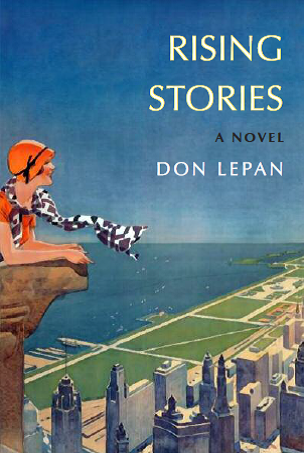How do we change our minds? I heard earlier today of an academic who had been persuaded in recent years to change his eating habits as a result of teaching a course on ethical issues; he decided as he worked through the arguments himself regarding ethics and the treatment of animals that he would alter his own behavior. It does often happen that people are directly persuaded by argument—whether the issue be the treatment of animals, capital punishment, gay marriage, whatever. (I remember being so persuaded on the issue of capital punishment many, many years ago—for me the “mistake” argument was the unanswerable one.)
It often happens too that emotion and imagination come together to bring about change; such was famously the case with the reaction to works such as Upton Sinclair’s The Jungle and, of course, Harriet Beecher Stowe’s Uncle Tom’s Cabin. On an almost infinitely smaller scale, I’m very happy to be able to report that even well in advance of the publication of Animals there are several people who have told me they are eating less meat (or no meat) as a result of reading the novel.
But some of the most interesting changes in attitude seem to happen without any such prompting, and without any overt persuasion. Such was the case for me with gay marriage. I remember at some point in the 1980s trying to think through the arguments for and against. I couldn't think of any really solid objection, but I nevertheless clung to some vague sense that it wouldn’t be quite right to call it marriage if it wasn’t between a woman and a man. And then I didn’t think about the issue at all for ten years or more, and when it surfaced again in my mind as an issue it had somehow come to seem glaringly obvious to me that legalizing gay marriage—and calling it just that—was the right thing to do. It’s that sort of process that I was thinking of when I wrote in Animals about how Rose and Jesse change their minds:
… just as often change happens as it was doing with Rose and Jesse, ideas popping up as if from out of the blue, vague worries that you should be worrying about something you haven’t in fact been worrying about, and then maybe months or even years and years go by and suddenly you can come to realise that you hold in your mind, already fully formed, a conviction that the way you had been used to seeing things all that time ago had been wrong, of course it had been wrong, any sensible person could see that you had to do x and not y. That was how it was with Rose and Jesse. Eight, nine years later Rose told Jesse out of the blue that she’d decided she should stop cooking meat, stop eating the stuff, and Jesse said yeah, they should go that route, for sure most of the time they should and it turned out that most of the time was all of the time and they never missed it, it never even seemed important.
More on this soon.
Monday, June 15, 2009
Subscribe to:
Posts (Atom)




